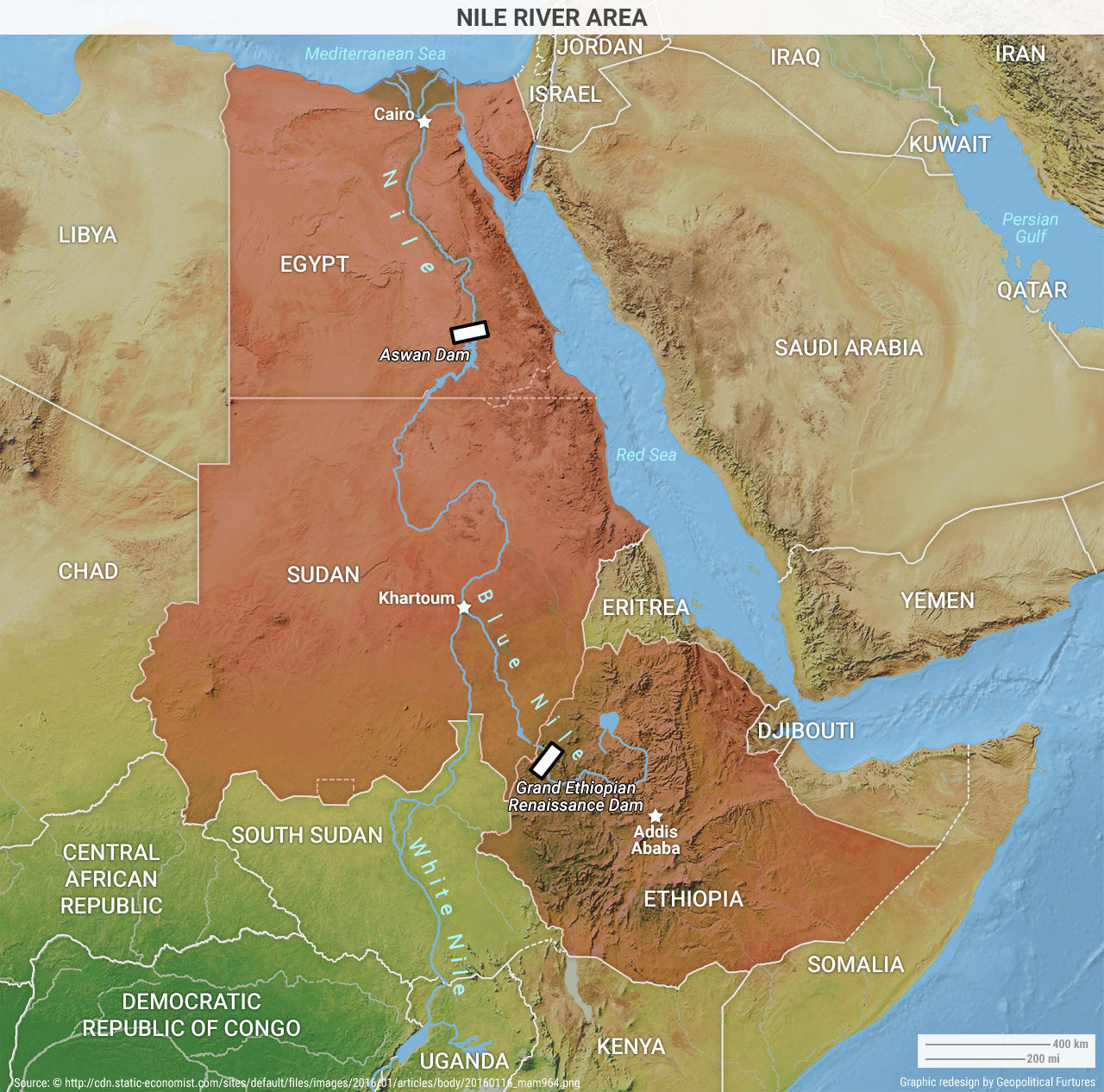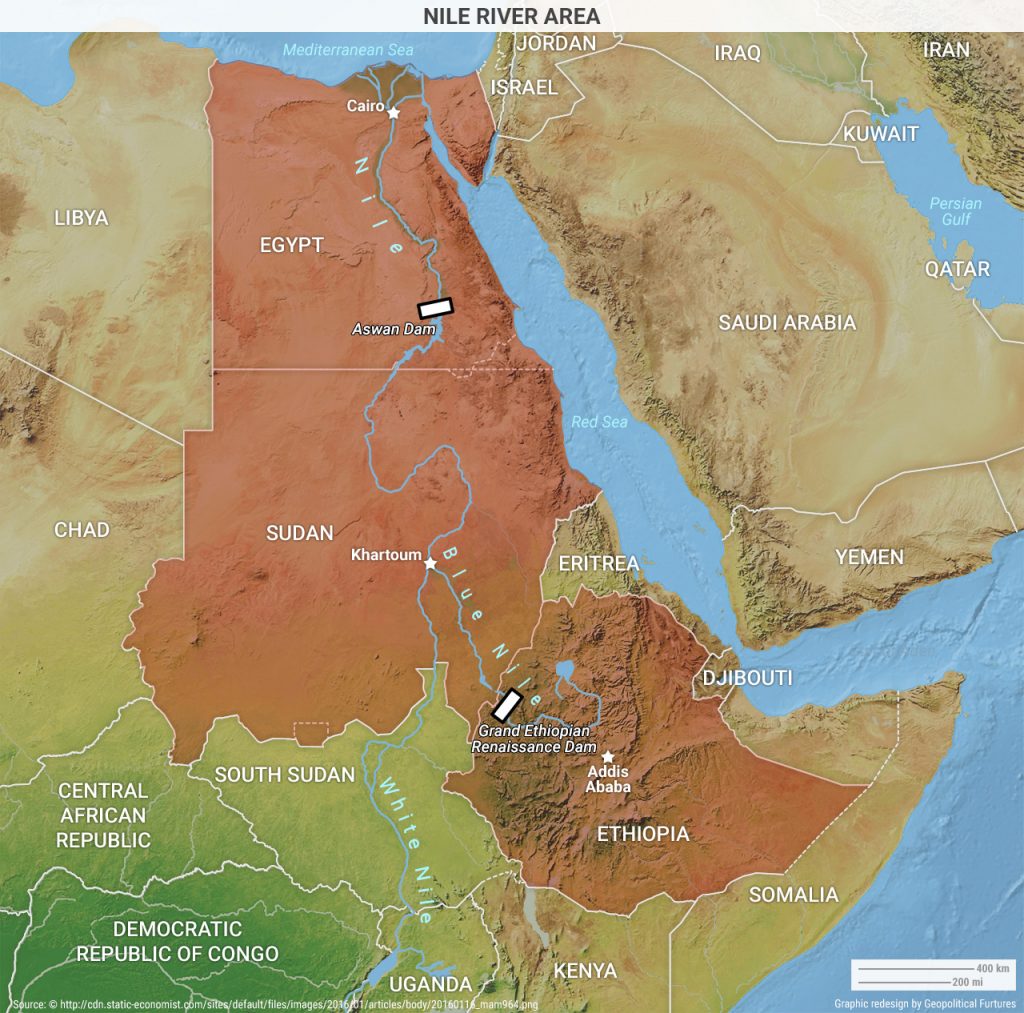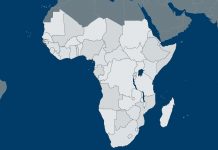Security around the sea is often jeopardized for reasons wholly unrelated to the sea itself. Among the littoral states there have been wars over natural resources, ethnic Arabs fighting non-Arabs, non-Arabs fighting non-Arabs (as in Ethiopia), Muslims fighting Christians, Sunnis fighting Shiites, and secular Muslims fighting traditionalist Muslims. And of course, there are battles to control passageways. With so many different national identities and so many weak states, conflict is nearly inevitable.
Affairs on the Red Sea’s east coast are mostly controlled by three states that stand above the rest in terms of economic size and military might: Egypt, Israel and Saudi Arabia. The western side, however, consists of weak states that often struggle to control their own territory. With weak central governments and many points of contention, these states constantly realign themselves in search of elusive security. It’s not an absolute power vacuum, but it’s close.
The Nile River plays an enormous part in any understanding of interstate relations on the west coast. Egypt depends almost entirely on the Nile for its water. The Nile is the confluence of two rivers, the White and Blue Nile, which come together in Khartoum, Sudan. Most of the Nile’s water comes from the Blue Nile, which runs north from the Ethiopian highlands to Sudan, where it meets the White Nile and moves on into Egypt. Almost no water is added to the Nile within Egyptian borders, making Egypt 95 percent dependent on water originating beyond its borders.
Alignments between western Red Sea littoral states are fluid, but the northward flow of the Nile sets up a fairly constant antagonism between Egypt and Ethiopia. Egypt, despite being the far more powerful of the two, is concerned about what Ethiopia may do upstream that could restrict its water supply. Ethiopia is concerned that Egypt’s fear will cause it to intervene in Ethiopia’s domestic politics to keep the country weak. Most recently this has taken form in the dispute over the Grand Renaissance Dam, which Ethiopia wants to construct on the Blue Nile to generate electricity and secure a more reliable water source. The speed at which this dam is filled risks slowing the flow of the Nile, threatening Egypt’s water supply. Last week, Egyptian, Sudanese and Ethiopian leaders agreed to cooperate on construction of the dam, but no amount of diplomacy can dispel the fact that, ultimately, Egypt’s water supply is in Ethiopia’s hands.







 The Geopolitics of the American President
The Geopolitics of the American President